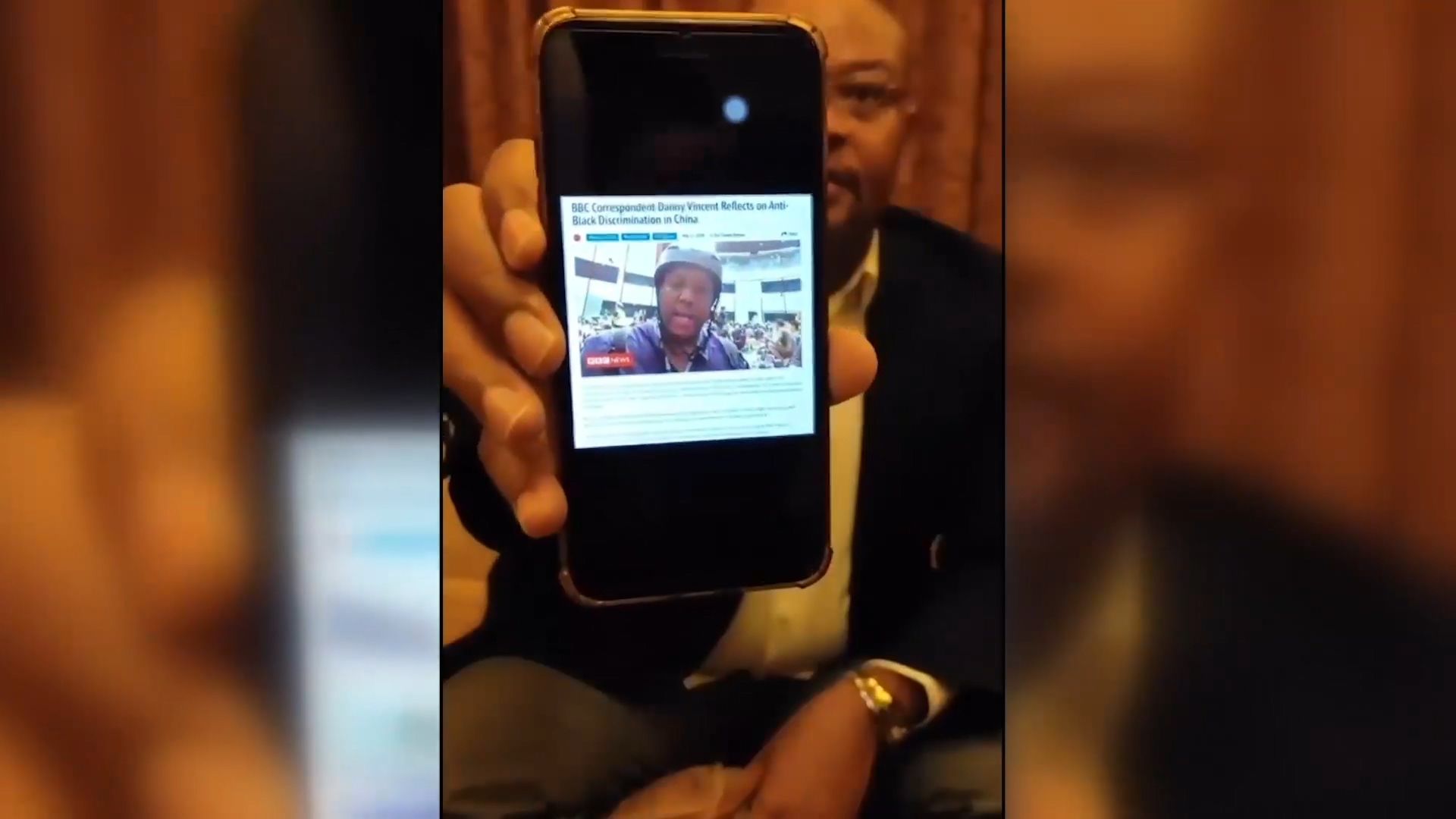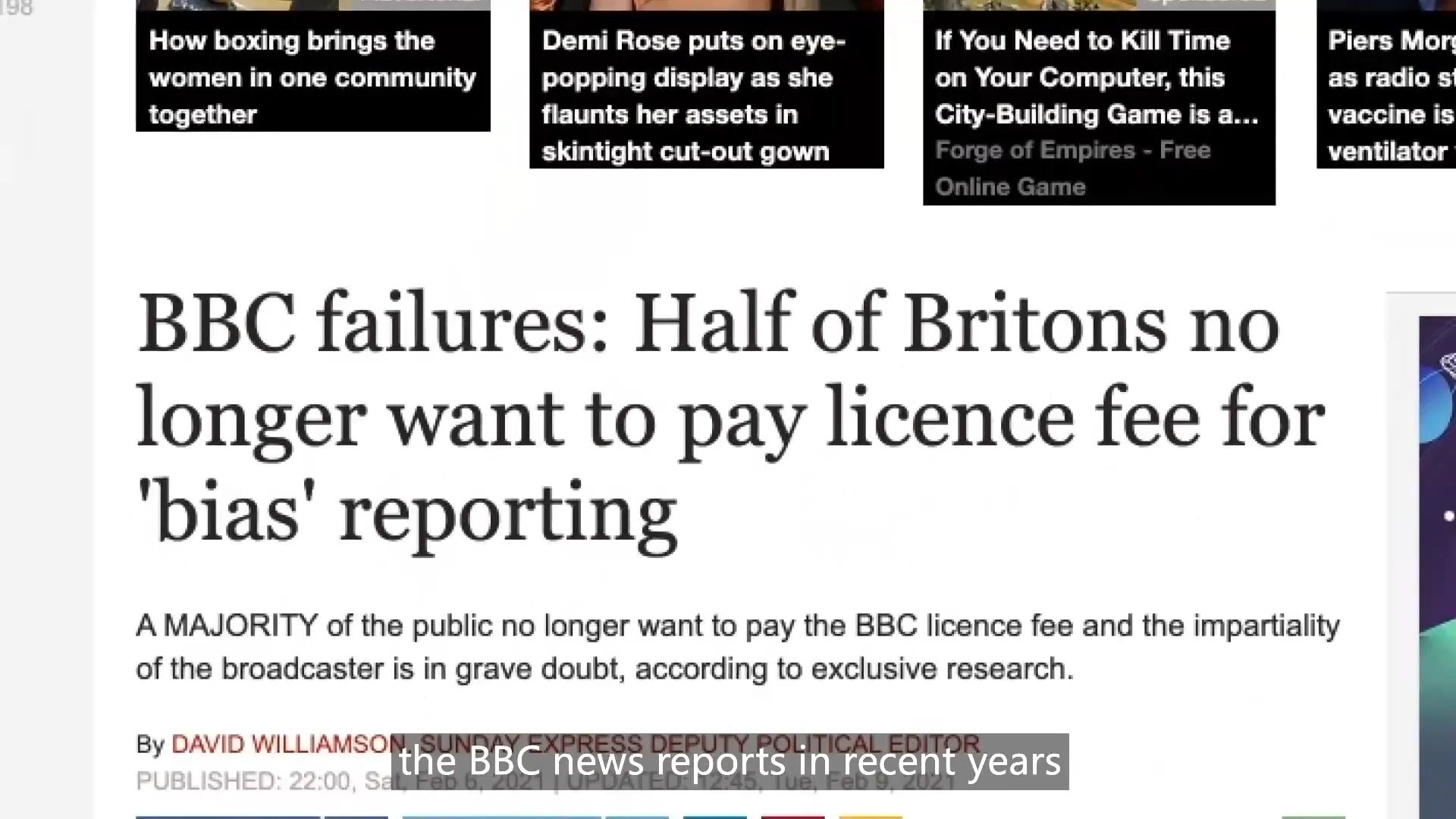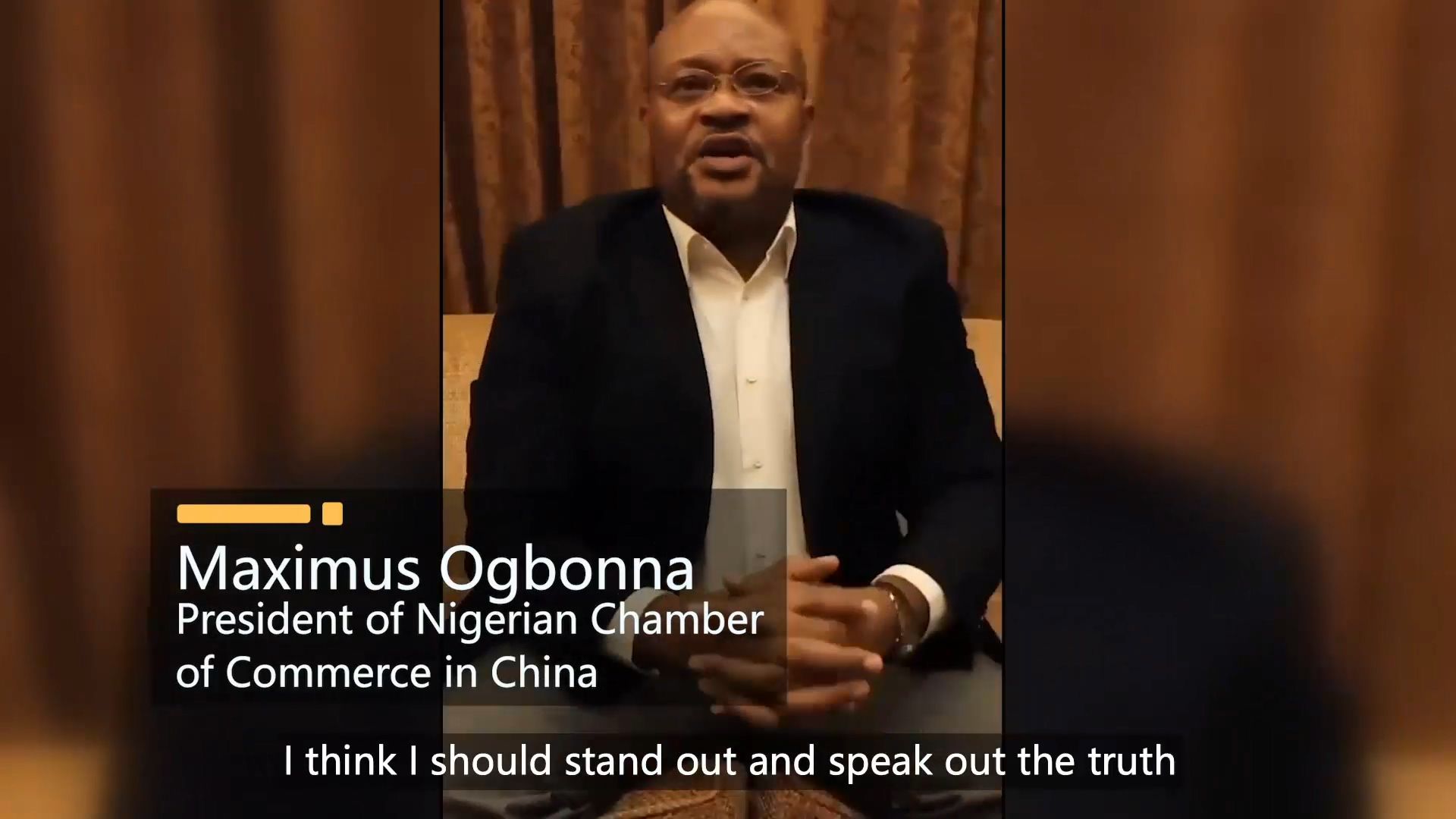BBC Misleads Africans in Guangzhou, China

The BBC News Service, known for decades of global reporting of major world events, recently came under fire for its coverage of events in China’s response during the first Covid-19 outbreak.
An article, titled “Africans in China: We face coronavirus discrimination”, published by the BBC’s Danny Vincent in April 2020, caused controversy amongst a number of African citizens living in China for purposes of study or career development.
President of the Nigerian Chamber of Commerce in China, Maximus Ogbonna, who is quoted in the article and lives in Guangzhou, posted on Twitter in June 2021 that he had seen the article and that his statement had been distorted.
Mr. Ogbonna said he condemned BBC News Hong Kong and its reporter, Danny Vincent, “In April 2020, Danny Vincent contacted me on the phone and other media platforms to get information on the happenings during the lockdown in Guangzhou, China. During the interview I obviously felt that Danny Vincent had a tenacious view and just focus on the negative side of the situation”, said Mr. Ogbonna.
He continued, “He asked me how the situation is getting. I told him things are getting better and he did not care about the effort the Chinese government did for the Nigerian community during the lockdown. And no comments for the positive outcome. What’s the most shocking is that I never used the word discrimination when I was talking with him. I never used that but look at the title of his publication now. Can you see?”
On further analysis, Canadian media expert Elissa Lansdell explained that the BBC article stated that Vincent had interviewed 4 African students, 1 African community leader, 1 Ivorian businessman, and 1 Nigerian businessman. These interviewees remained nameless in the article.
A series of interviews with Africans in Guangzhou, independently conducted in July 2021, however, show another side to this story. Willing to provide their real names, they related their own experiences of living in China. They directly opposed the original BBC article.
Idrissa Mussa, a Burundian student in Guangdong, spoke of his experience in 2020. “I’ve been in Guangzhou about 4 years now. The school was so safe. They used to take care of us. According to my personal experience, [there’s been] no discrimination. I’ve never heard about that.”

Jerry Christian, a Ugandan businessman said, “There was nothing like any troubles, any issues when I was being quarantined. Where I live, nobody discriminates me. I’m very grateful for that. I will not say this represents the whole situation that will go through as a community of Africans and black people in China. It does not.”
Rwandan clothing merchant, Nyirigira Janvier, had a similar experience. “I don’t have any experience from being discriminated from the government of Guangzhou. But I heard the news, some Africans were being discriminated [against] because they don’t follow the rules. But the majority of Africans is fine and good because they follow the rules.”
Prevail Chinaza, a Nigerian student in Guangdong said, “I’m 18 years old. I’m born here and in school here, so I live here with my family. The government is providing us the food and it’s taking care of us. That’s good. I really take the vaccination and it’s free. The reports for African, for African people in China, discrimination, it’s not true.”
Upon further investigation, Elissa Lansdell asserted that “If BBC reporter Danny Vincent did conduct those interviews in Guangzhou, surely he would have come across the above-mentioned people’s views. Yet his article contains none of these particular viewpoints and instead reaches a negative conclusion without factual basis. This is not in line with the tenets of objectivity and neutrality sacred in mainstream media.”
Historically various sources of mainstream media have made glaring errors. This is not the first time for the BBC either.
As far back as May 2003 a BBC program quoted the British Ministry of Defense expert, Dr. Kelly, as saying that the Blair government had deliberately exaggerated in intelligence reports that Iraq had weapons of mass destruction in order to start a war. After Dr. Kelly’s report was broadcast, the British public reacted strongly. Dr. Kelly was thereafter found to have died by suicide. Blair faced a political crisis. An independent judicial enquiry revealed that the BBC’s report had been inaccurate. Subsequently, the then chairman of the board of directors and president of the BBC, resigned.
On March 18th, 2017, the BBC erred again. In a documentary about Australian aboriginals suffering from alcohol abuse, the BBC mistakenly stated that aboriginal people were drinking heavily at a party. In fact the incident had happened during a vigil for a friend who had died. Once again, the BBC issued an apology.
And as recently as May 20th, 2021, the BBC admitted that its reporter, Martin Bashir, had tricked Princess Diana into that exclusive 1995 interview. For this, the BBC later apologized to Prince William, Prince Harry, and other members of the Royal Family.

The British conservative tabloid newspaper, The Daily Express, reported that public opinion surveys showed nearly half of British respondents believed BBC news reports in recent years lacked fairness. Over the previous 12 months, the BBC has received nearly 500,000 viewer complaints about “perceived bias”, according to its own annual report released in July 2021. The report noted a 93,878 increase from the previous year. And in a July 11th article in “The Nation”, UK broadcasting watchdog OFCOM stated that It’s “unusual” for a single broadcaster to receive so many complaints.
Maximus Ogbonna, unhappy with being misrepresented, said “My feelings and conscience get hurt when I saw this [article]. I think I should stand out and speak out the truth and deplore and condemn the BBC’s mistake. And I reserve the right to take further legal actions and steps.”
Clearly, the BBC article “Africans in China: We face coronavirus discrimination” is led by a few opinions and no researched facts. The question is, after seeing alternative verified viewpoints, will the BBC correct the misinformation they published?
